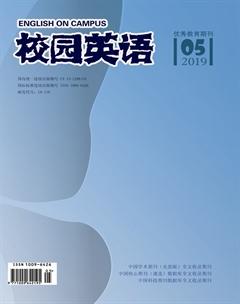The Role of Teacher , Learner and Material in Foreign Language Teaching and Learning
In the past decades, we witnessed the proliferation of English use across the globe and the increase of numbers of English learners. This now gives rise to the concern of the role of a teacher, a learner and material in foreign language teaching and learning.
With regard to the roles played by an English teacher, the primary respect is that the teacher is obliged to give students an impetus to learn this language. In other words, a teacher serves as a motivation where students are effectively stimulated to master this language with long-term enthusiasm and grit. But what is motivation?Brown offered an answer in his book (2007,p.85): “Motivation is the extent to which you make choices about (a) goals to pursue and (b) the effort you will devote to that pursuit.” For instance, in practical teaching, the use of English in students future life, not restricted in career, should be clearly explained to students. When being aware of the function of learning a second language, they are more likely to become motivated and persist in a purpose-oriented learning. Thus, the learning results can be better guaranteed.
Apart from this, a teacher is expected to help disseminate a new culture to his students.Language learning is more of mastering this language itself. That is to say, technically, language learning matters more in expansion of ones horizon and development of insight into the world.Knowing cultures and customs of different countries, a student could be more completed in terms of knowledge accumulation and outlooks. Based on the current criteria of an all-around skilled person, one with knowledge only cannot excel among his peers or job applicants.What plays a more crucial role is the mastery of integrated capacity, comprising knowledge and insight.Having access to a new culture enables a person to view the world from a different perspective.Accordingly, his experience and insight would differentiate him from others and thus provide more opportunities in return.
When it comes to the role of a foreign language learner, one should regard himself or herself as a user. In other words, the acquisition of a language relies on repetitive use, instant feedback and modification so as to realize improvement and even perfection.Unfortunately, during my 10-year teaching experience, I witness loads of students learn English in a hope of passing the test rather than using it in their daily routine. When targeting on test, learners may make it a point to learn grammar, do intensive reading and written exercise. It is necessary indeed. But considering the core function of a language, we could reach an agreement——communication.So needless to say, these learners are disorientated.On the contrary, if they attach importance to comprehensive ability, including listening, speaking, reading and writing, and use English frequently in practical communication, the result may exceed expectation.As Lee and Wallace indicated in their experiment about flipped class (2017,p.17): “Students in the flipped group appeared to be more invested not only in the process but also in their final products.”
Turning to the materials in learning and teaching, they serve as resources and guides to a large extent. With the diversity of resources and channels, say internet, radio as well as printed books, language learners now can reach a wide range of learning materials readily, which allow them to practise in authentic contexts. This greatly facilitates the learning process. Plus, authorized materials can work as guides who direct the learns to the right course by offering samples. The renowned series New Concept English is a case in point. By reading or listening to the conversations in textbooks, learners can be aware of the use of specific word, phrase and grammar, then imitate the speakers in the form of role-play.After imitating and practising over and over again, one may pick up this language spontaneously.Hence, in the acquisition of a new language, materials are rather essential.
References:
[1]Brown,H.Principles of Language Learning and Teaching (4th ed).New York:Addison Wesley Longman,Inc,2000.
[2]Lee & Wallace.Flipped Learning in the English as a Foreign Language Classroom:Outcomes and Perceptions[J].TESOL QUARTERLY Vol.0,No.0,March 2017.
【作者簡介】杨涛,贵州省贵阳市CC英语学校。

